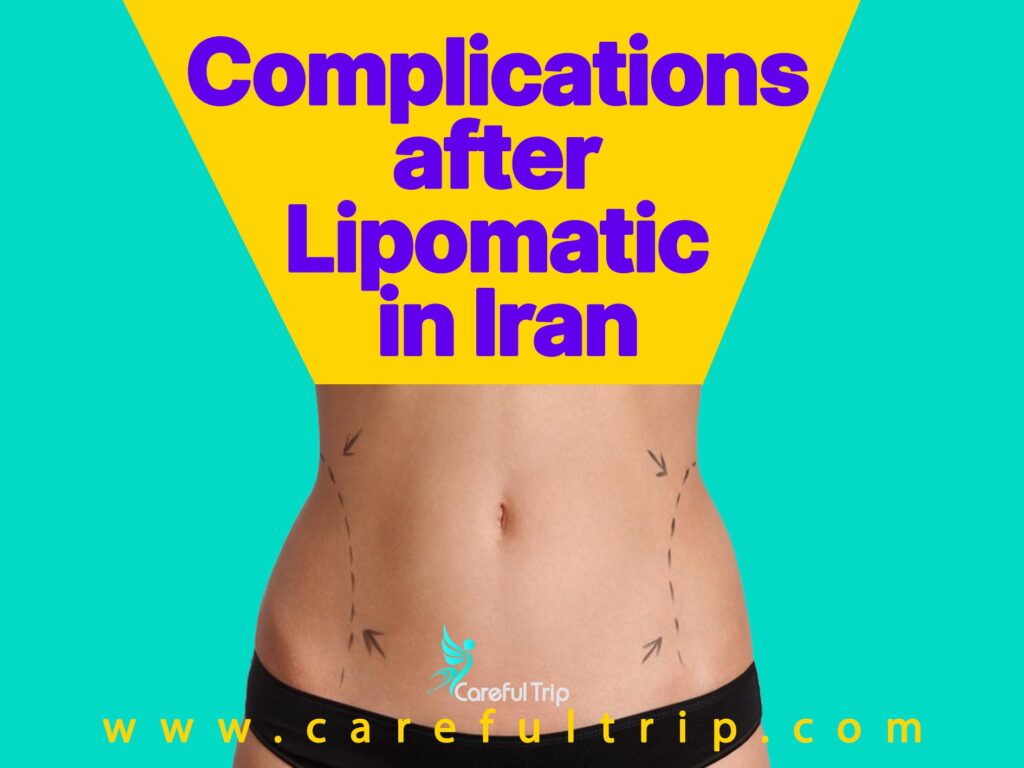
Lipomatic surgery has gained popularity in Iran and worldwide as an advanced, less-invasive cosmetic procedure for removing stubborn fat deposits. Its excellent results have made it a preferred choice for individuals who struggle to eliminate fat despite having a healthy diet and regular physical activity.
Although Lipomatic is known for its minimal side effects, swelling is one of the most common complications patients may experience. Here, we examine the causes of swelling after Lipomatic surgery, offer evidence-based tips for managing it, and provide additional guidance for a smooth recovery.
Understanding Lipomatic Surgery
Lipomatic surgery employs a specialized cannula that uses vibration technology to break down and remove fat cells gently. The vibrational method helps achieve precise fat reduction with minimal bleeding and discomfort. Being FDA-approved and widely practiced in countries like Turkey and Iran, Lipomatic offers a safe alternative to more invasive liposuction procedures. However, the vibrational energy can affect surrounding tissues, leading to postoperative swelling.
Areas Commonly Treated with Lipomatic
Lipomatic surgery is versatile and can be performed on several areas of the body, including:
- Abdomen
- Waist
- Thighs
- Back
- Hips
How Lipomatic Surgery Causes Swelling
Swelling after Lipomatic surgery is primarily due to two interrelated factors:
1. Trauma from Vibrational Energy
- Cellular Impact: The cannula’s vibration not only disrupts fat cells but also affects the surrounding tissues. This localized trauma triggers an inflammatory response, resulting in fluid accumulation and subsequent swelling.
2. Sudden Fat Depletion and Decreased Skin Firmness
- Rapid Fat Removal: The abrupt loss of fat stores prompts the body to retain water in the treated area.
- Reduced Structural Support: Similar to removing the foundation of a building, the sudden depletion of fat can temporarily reduce skin firmness, leading to additional fluid retention until the body adapts during the healing process.
Duration of Postoperative Swelling
Swelling is a natural inflammatory response after Lipomatic surgery. Most patients begin to notice swelling within one to two days post-procedure, with the intensity gradually decreasing over a few weeks. Individual recovery times may vary depending on one’s physical condition and adherence to aftercare guidelines.
Strategies to Reduce Post-Lipomatic Swelling
Wear Compression Garments
- Mechanism: Compression garments apply gentle, consistent pressure to the treated areas, helping to absorb excess fluid and reduce inflammation.
- Benefits: They support the skin and aid in minimizing the accumulation of lymphatic fluid, thereby accelerating recovery.
Undergo Lymphatic Drainage Massage
- Technique: A specialized massage performed by a skilled therapist focuses on the superficial layers of the skin without disturbing deeper tissues.
- Benefits: This massage encourages the return of lymphatic fluid to its natural channels, effectively reducing swelling and promoting better circulation.
Engage in Light Physical Activity
- Recommendation: Light exercises, such as walking, are encouraged a few days after surgery.
- Benefits: Gentle movement improves blood circulation, reduces the risk of blood clots, and facilitates the drainage of excess fluids from the treated area.
Follow an Appropriate Diet
- Dietary Guidelines: An anti-inflammatory diet rich in vegetables, fruits, nuts, and fatty fish is recommended. Avoid excessive salt and alcohol, which can promote water retention.
- Hydration: Maintaining proper hydration supports the body’s natural healing processes and helps regulate fluid balance.
Other Potential Complications
While swelling is the most common complication associated with Lipomatic surgery, some patients may occasionally experience additional minor issues:
- Bruising: A degree of bruising is expected after the procedure and typically resolves within one to two weeks.
- Temporary Numbness: Some patients might notice a short-term loss of sensation in the treated area due to nerve irritation.
- Irregular Contours: In rare cases, uneven fat removal may lead to irregular skin contours, which can often be corrected with follow-up treatments.
- Infection: Although very rare in minimally invasive procedures, any signs of infection should be addressed promptly by your surgeon.
“All risks will be fully discussed prior to your consent. It is important that you address all your questions directly with your plastic surgeon,” – American Society of Plastic Surgeons

When to Contact Your Surgeon
It is essential to monitor your recovery closely after Lipomatic surgery. You should contact your surgeon if you experience:
- Persistent or worsening swelling beyond several weeks
- Severe pain that is unresponsive to prescribed medications
- Signs of infection, such as fever, increased redness, or unusual discharge from the incision sites
- Noticeable changes in skin color or texture in the treated area
- Significant or unexplained numbness in the area
Partnering with CarefulTrip for a Seamless Cosmetic Surgery Experience
Navigating cosmetic surgery—especially abroad—can be overwhelming. Medical tourism facilitators like CarefulTrip are here to help. Specializing in connecting international patients with top cosmetic surgery centers in Iran, CarefulTrip ensures a seamless and stress-free experience. Their comprehensive services include:
- Pre-Surgery Consultation: Personalized guidance to help you select the right surgeon and clinic based on your specific needs.
- Travel Arrangements: Assistance with visas, flights, hotel accommodations, and local transportation.
- On-Ground Support: Multilingual coordinators who help you navigate the medical system and cultural differences.
- Post-Operative Care Coordination: Support with follow-up appointments and rehabilitation services to ensure a smooth recovery.
By partnering with CarefulTrip, you can focus on achieving your cosmetic goals while they handle all logistical details, making your journey both safe and rewarding.
Final Thoughts
While swelling is a common and manageable complication following Lipomatic surgery, proper postoperative care can significantly enhance your recovery. By adhering to the strategies outlined above and knowing when to seek professional help, you can ensure a smooth healing process. For personalized support and comprehensive guidance throughout your cosmetic surgery journey, consider partnering with CarefulTrip.
Frequently Asked Questions (FAQs)
Q: How long does swelling typically last after Lipomatic surgery?
A: Most patients notice swelling within one to two days post-surgery, with gradual improvement over a few weeks. Individual recovery times may vary.
Q: Are compression garments necessary?
A: Yes, wearing compression garments is one of the most effective ways to reduce swelling and support the treated area during recovery.
Q: When can I resume normal activities?
A: Light activities such as walking are recommended a few days after surgery. More strenuous exercises should be avoided until you receive clearance from your surgeon.
Q: Can dietary changes help reduce swelling?
A: Absolutely. An anti-inflammatory diet and proper hydration can support healing and reduce swelling.
Sources
- American Society for Aesthetic Plastic Surgery – Liposuction Complications
- FDA Liposuction Guidelines
- Iran Health Tourism News – Advanced Cosmetic Surgery Techniques in Iran

